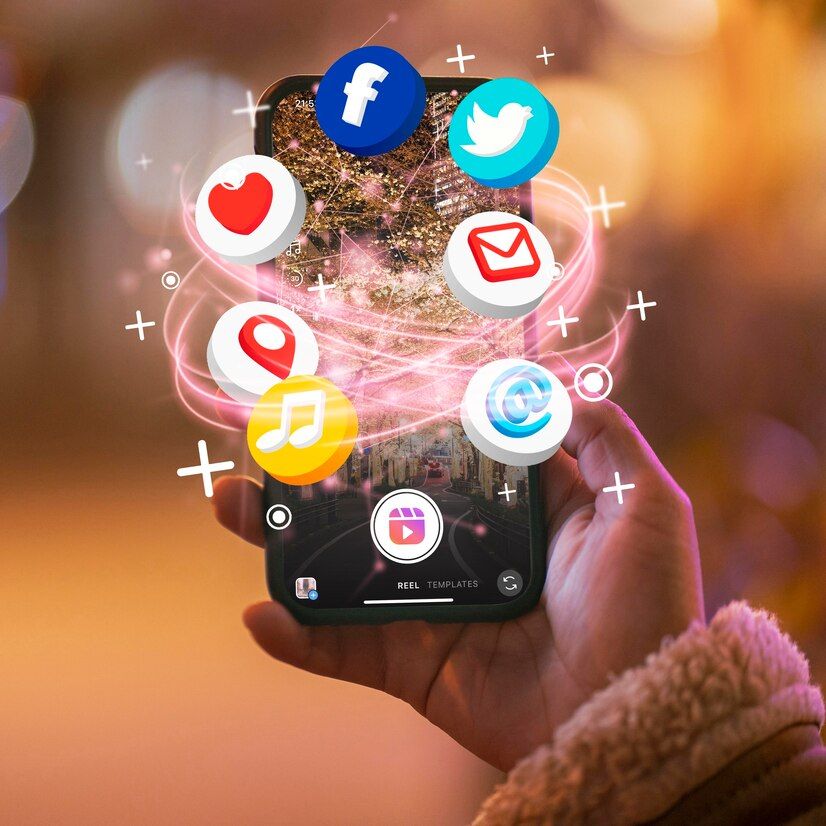Back to the list
Social Media Marketing: Which Platform Plays the Most Effective Role in Marketing?
Tara
May 31, 2024

In the dynamic world of social media marketing, choosing the right platform can make or break your campaign. Each social media platform offers unique strengths and attracts different audiences, making it crucial to align your marketing strategy with the right platform. In this blog post, we'll explore the most effective social media platforms for marketing and provide insights to help you make an informed decision.
1. Facebook: The Giant of Social Media
Audience Reach: With nearly 3 billion monthly active users, Facebook remains the largest social media platform globally. Its extensive user base spans across various age groups, making it a versatile choice for marketers.
Advertising Capabilities: Facebook's advanced targeting options allow marketers to reach specific demographics, interests, and behaviors. Features like Facebook Ads, boosted posts, and the Facebook Pixel help track and optimize ad performance.
Engagement Tools: Facebook offers numerous engagement tools, including Pages, Groups, Events, and Messenger. These tools facilitate community building, customer support, and direct communication with your audience.
Best For: B2C and B2B businesses looking to reach a broad audience and leverage detailed targeting options.
2. Instagram: Visual Storytelling at Its Best
Audience Reach: Instagram boasts over 1 billion monthly active users, primarily attracting younger demographics (18-34 years old). It is the go-to platform for visual content enthusiasts.
Advertising Capabilities: Instagram's integration with Facebook Ads Manager provides robust targeting options. Features like Stories Ads, Carousel Ads, and Shopping Tags enhance the shopping experience directly within the app.
Engagement Tools: Instagram's engagement features include Stories, Reels, IGTV, and Instagram Live. These tools are ideal for showcasing products, behind-the-scenes content, and real-time interactions.
Best For: Brands focused on visual content, influencer marketing, and targeting a younger, visually-driven audience.
3. Twitter: Real-Time Conversations and Trends
Audience Reach: Twitter has around 330 million monthly active users who thrive on real-time updates and trending topics. It is popular among news enthusiasts, influencers, and industry leaders.
Advertising Capabilities: Twitter Ads offer targeting based on interests, demographics, and keywords. Promoted Tweets, Accounts, and Trends help amplify your message to a broader audience.
Engagement Tools: Twitter's primary engagement tools include Tweets, Threads, Polls, and Twitter Spaces. These features support real-time conversations, customer service, and trend participation.
Best For: Brands aiming to engage in real-time conversations, customer support, and thought leadership.
4. LinkedIn: The Professional Network
Audience Reach: LinkedIn has over 774 million members, predominantly professionals and businesses. It is the leading platform for B2B marketing and professional networking.
Advertising Capabilities: LinkedIn Ads offer targeting based on job title, industry, company size, and more. Sponsored Content, InMail, and Display Ads help reach decision-makers and industry professionals.
Engagement Tools: LinkedIn's engagement features include Articles, Posts, Groups, and LinkedIn Live. These tools are excellent for sharing industry insights, company updates, and networking.
Best For: B2B companies, recruiters, and professionals seeking to build industry connections and thought leadership.
5. TikTok: The New Kid on the Block
Audience Reach: TikTok has rapidly grown to over 1 billion monthly active users, with a strong presence among Gen Z and millennials. It is known for its short-form, creative video content.
Advertising Capabilities: TikTok Ads offer targeting based on demographics, interests, and behaviors. In-Feed Ads, Branded Hashtag Challenges, and Branded Effects provide creative advertising opportunities.
Engagement Tools: TikTok's engagement features include Duets, Reactions, and Livestreams. These tools encourage user participation and viral content creation.
Best For: Brands looking to engage younger audiences with creative, viral video content.
Conclusion
Choosing the most effective social media platform for marketing depends on your target audience, content strategy, and business goals. Facebook and Instagram excel in reaching broad and visually-driven audiences, while Twitter is ideal for real-time engagement. LinkedIn stands out for B2B marketing, and TikTok is perfect for brands aiming to capture the attention of younger demographics.
By understanding the unique strengths of each platform, you can craft a social media marketing strategy that maximizes your reach and impact. Experiment with different platforms, analyze your results, and adapt your approach to find the perfect mix for your brand.
Need help with your social media marketing strategy? Contact us at MyClient.ai CRM to learn how we can help you leverage the power of social media to grow your business.
Share this post
Subscribe to our newsletter